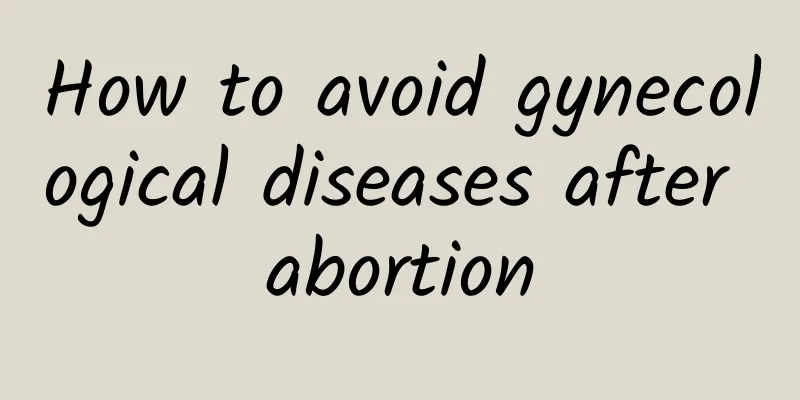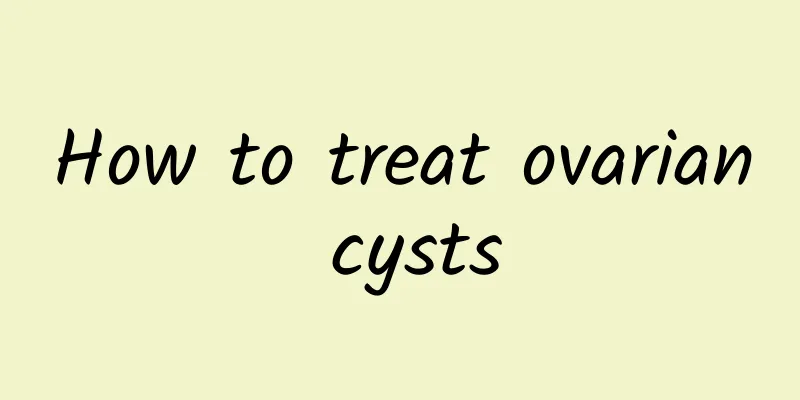How to avoid gynecological diseases after abortion

|
After an abortion, the patient will be weak and have low resistance. To avoid the occurrence of gynecological diseases after an abortion, they should avoid heavy physical labor, strictly prohibit sexual intercourse within one month after the operation, pay attention to personal hygiene and avoid sitting baths, adjust their diet to ensure adequate nutrition, etc. Avoid heavy physical labor After the abortion, the patient should rest in bed for 2 to 3 days. He or she can then get out of bed and move around, gradually increasing the activity time. Do not engage in heavy physical labor within half a month to avoid reinjury to the wound and affecting recovery. No sexual intercourse for one month Patients should strictly refrain from sexual intercourse within one month after an abortion. At this time, the damage to the endometrium has not yet fully recovered, and there may still be local damage. The ability to resist bacteria is low. Having sexual intercourse too early will allow bacteria that enter the vagina to easily infect the endometrium, leading to the occurrence of gynecological diseases such as endometritis. Keep your vulva clean After surgery, patients need to keep their vulva clean and hygienic, wash it with warm water 1-2 times a day, and change sanitary napkins and underwear frequently. Tip: If you find abdominal pain or bleeding more than menstrual volume, please go to the hospital in time. Avoid sitz baths Patients should avoid sitting baths within two weeks after abortion or before vaginal bleeding has stopped, so as to prevent unclean water from entering the vagina, causing bacteria to invade the uterus, causing infection, and leading to gynecological diseases. Diet care Pay attention to nutritional matching in diet and ensure protein intake, such as eggs, milk, fish, poultry, meat, etc. Eat more vegetables and fruits, but eat less raw, cold, and hard food to avoid irritating the intestines and causing indigestion, which is beneficial to the patient's postoperative recovery. |
<<: Polycystic ovary can cause hypothalamic amenorrhea
>>: What should patients with uterine fibroids not eat?
Recommend
What are the causes of bilateral ovarian cysts?
For the treatment of ovarian cysts, due to differ...
Eating fruit for breakfast is golden, it replenishes vitamin C and enzymes ~ It turned out to be a misunderstanding!
I don’t know when it started, but the saying “Fru...
Strict inspection of clenbuterol expanded to pig farms and pork products
The storm over the presence of ractopamine in Ame...
Can menopause be cured?
Every woman will experience menopause, so you sho...
Why does leucorrhea have an abnormal odor?
Why does leucorrhea have an abnormal odor? Abnorm...
What should you pay attention to in preventing female vaginitis?
Vaginitis is a common disease among female friend...
Butchers evade investigation! New Taipei City investigates and sends first case to the government
The New Taipei City Government's Health Burea...
Important symptoms of vulvar leukoplakia
Vulvar leukoplakia is a type of gynecological dis...
What drugs are effective in treating endometrial tuberculosis?
We all know about endometrial tuberculosis. The i...
Stick exercise for fat loss and body shaping? 4 Myths of Stick Exercise
Stick exercises are becoming popular. Many people...
Mediterranean diet remains the best diet! 6 unexpected benefits of the Mediterranean diet you must know
The Mediterranean diet has many health benefits. ...
What are the symptoms of menopausal irregular menstruation? These 4 foods should not be eaten for menopausal irregular menstruation
Menopause irregular menstruation is a special per...
How to treat functional uterine bleeding with Chinese medicine artificial cycle therapy
The artificial cycle therapy of traditional Chine...
Are multiple ovarian cysts serious?
I believe all women know the significance of ovar...
What is the reason for the light color of the first day of menstruation?
What is the reason for the light color of the fir...









